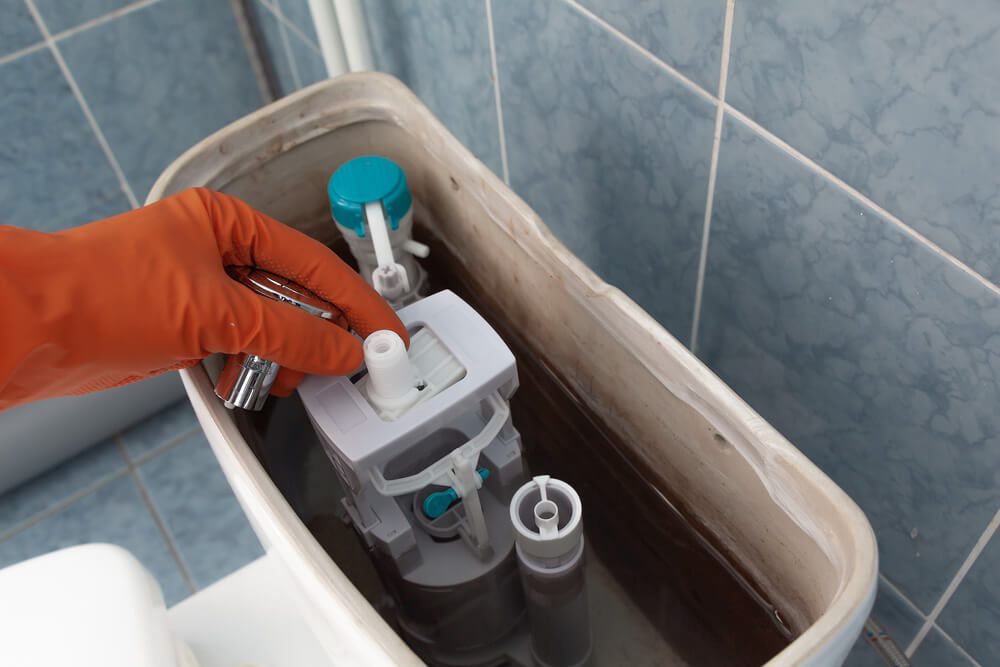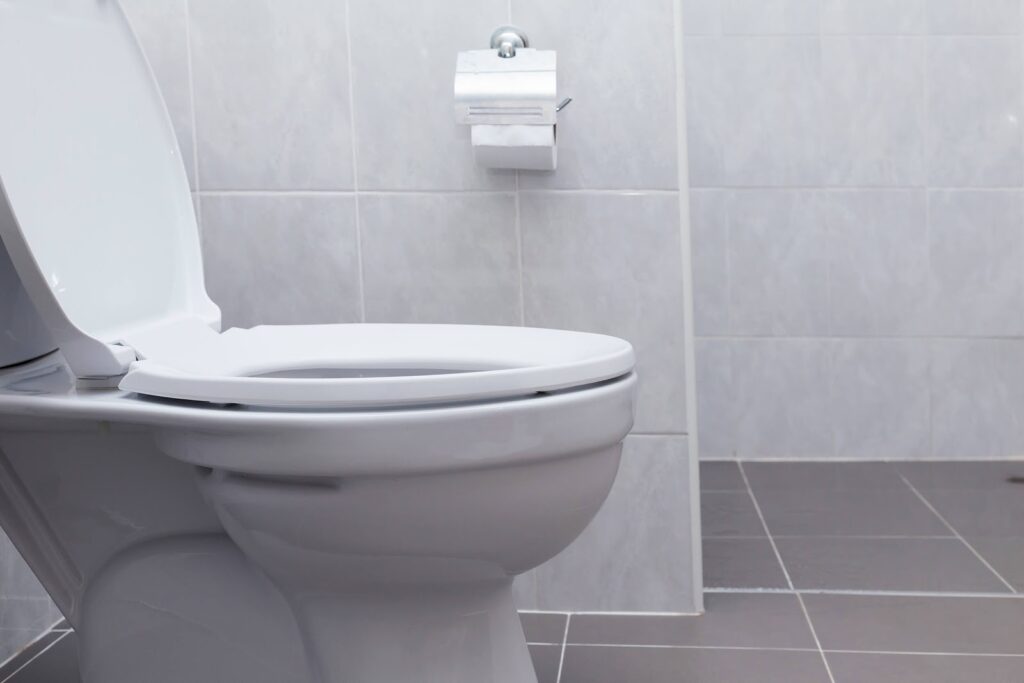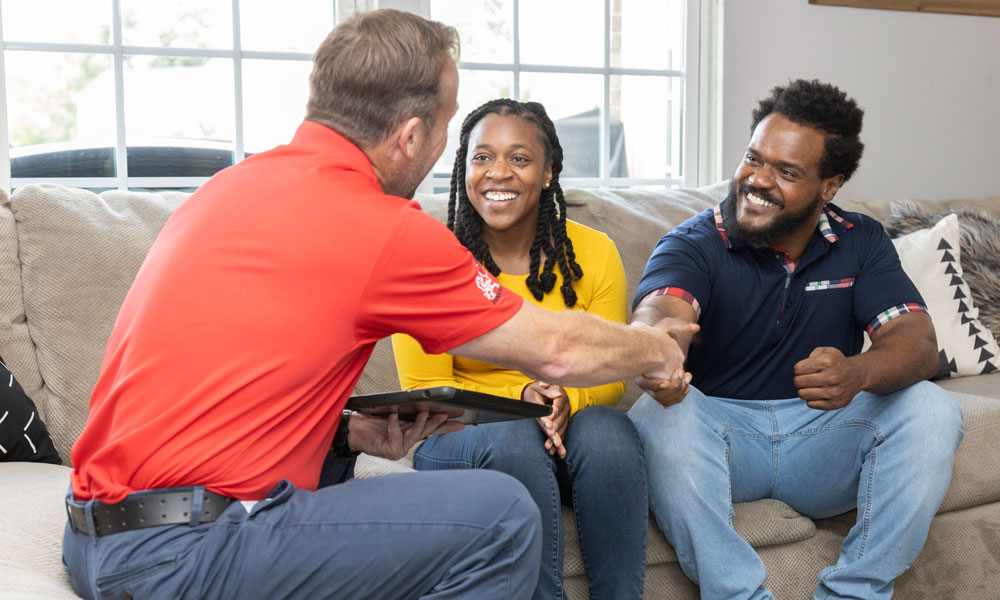Blog
How to Fix a Running Toilet

Few plumbing problems are as common or as frustrating as a toilet that will not stop running. That constant trickle wastes water every minute it goes unchecked, and your bill rises quickly. The good news is that fixing it usually takes only a few tools and a little patience.
At Apollo Home, we have helped families across Greater Cincinnati, Dayton, Northern Kentucky, and Southeast Indiana for decades. Here is a simple guide to help you solve this issue yourself and when to call us if DIY is not enough.
Tools & Materials You’ll Need
- Adjustable wrench
- Flathead or Phillips screwdriver
- Replacement flapper or fill valve
- Towel or sponge
Why Toilets Keep Running
Inside the tank, a few small parts control how water flows. When something is off, the toilet keeps running. Common causes include:
- Worn flapper: A cracked or warped flapper lets water leak into the bowl.
- Float out of adjustment: If set too high, the tank overfills and water spills into the overflow tube.
- Fill valve problems: A faulty valve may keep allowing water in.
- Overflow tube issues: Tubes that are damaged or misaligned can keep the toilet cycling.
Step-by-Step Fixes
1. Shut off the water supply
Turn the shut-off valve behind the toilet clockwise. Flush once to drain most of the tank.
2. Replace the flapper
Check the rubber flapper at the bottom of the tank. If it looks bent or brittle, remove it and attach a new one. Adjust the chain so the flapper seals tightly after each flush.
3. Adjust the float
If the water level is too high, lower the float. On older ball floats, bend the rod down slightly. On newer cup floats, press the clip and slide it down. Water should stop about an inch below the overflow tube.
4. Inspect the overflow tube
If water still spills, check the tube. It should sit just above the water line and be free of cracks. Replace it if needed.
5. Replace the fill valve
If none of the above helps, the fill valve may be bad. Shut off the water, remove the old valve, and install a new one. Reconnect, turn on the water, and test.
Most running toilets are solved by replacing a flapper or adjusting the float. The other steps help with more stubborn cases.

When to Call a Plumber
Most running toilets can be fixed with these steps, but call a professional if:
- The toilet keeps running after replacing parts
- The tank or bowl is cracked
- You see water damage around the toilet
Professional repair prevents further damage and saves time.
Why Fix It Quickly
It is tempting to ignore a running toilet since it still flushes. But one running toilet can waste hundreds of gallons per day, spiking your bill and putting stress on older plumbing systems often found in Cincinnati and Northern Kentucky homes.
Preventing Future Problems
- Replace the flapper every few years, sooner if you have hard water
- Avoid in-tank cleaners that break down rubber parts
- Check float height during seasonal maintenance
- Test toilets after vacations to confirm they shut off correctly
Apollo Home: Your Local Plumbing Experts
Apollo Home has been the trusted plumbing team for Greater Cincinnati for decades. Homeowners count on us for:
- Licensed plumbers who explain repairs in plain terms
- Upfront pricing with no surprises
- Fast service when plumbing issues cannot wait
- Local expertise for homes across Cincinnati, Dayton, Northern Kentucky, and Southeast Indiana

Fix Your Running Toilet Today
A running toilet may not be an emergency, but it is a problem worth fixing right away. Most homeowners can tackle the repair themselves with a few simple steps. But if the problem will not go away, or if you would rather have a professional handle it, Apollo Home is ready to help. From Cincinnati to Dayton to Northern Kentucky and Southeast Indiana, we bring the expertise, care, and local experience your home deserves.
Frequently Asked Questions
Every three to five years is typical. Hard water can shorten its lifespan, so check yours once a year.
Yes. It still flushes, but it wastes hundreds of gallons of water and can double your bill.
Most universal flappers and fill valves work fine. Just make sure you match the right size and follow the directions.
If you have replaced parts and it still runs, the problem may be with the handle linkage, overflow tube, or mineral buildup. That is when it is time to call in a pro.


